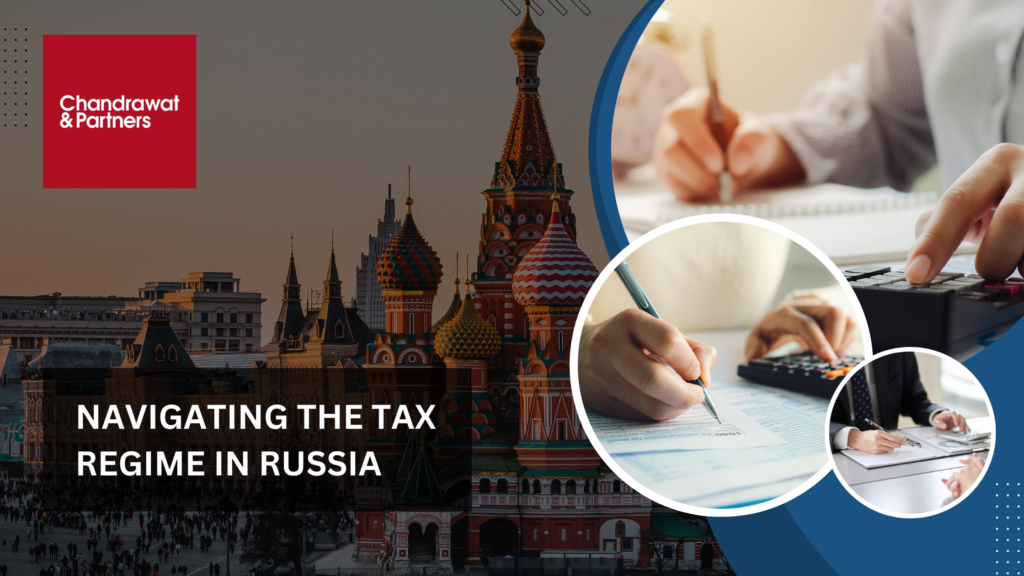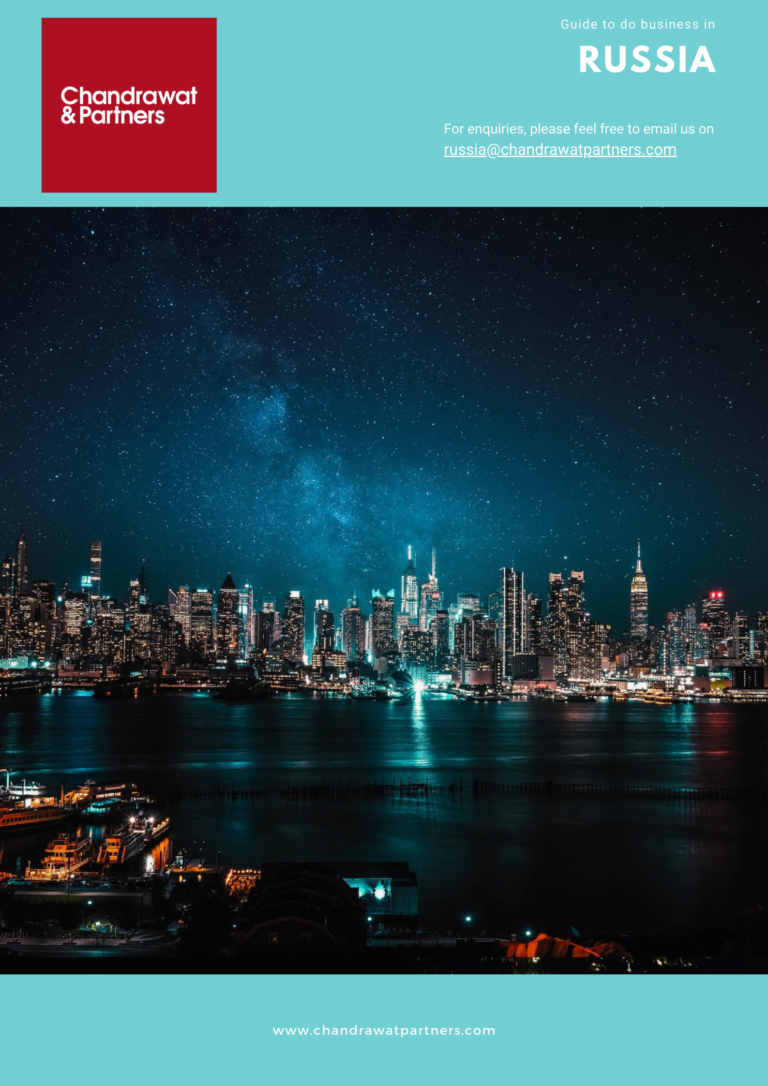Russia
We have a team of professionals to help you with all your business needs. So, that you can focus on business expansion in Russia.
WHY RUSSIA?
The largest country in the world, Russia occupies one tenth of all the land on Earth. It covers twice the territory of Canada, which is the second largest country in the world, spans 11 time zones across two continents, “Europe and Asia” and has coasts on three oceans. The country is a federation of 86 republics, provinces, territories, and districts.
Basically, the Russian economy is based on a vast supply of natural resources, such as; oil, coal, iron ore, gold, and aluminum. Russia’s memberships of the Eurasian Economic Union have opened up doors for foreigners to do business. As the Asian continent has fast growing economy and huge population, this access can help investors in Russia to boost their business growth even more.
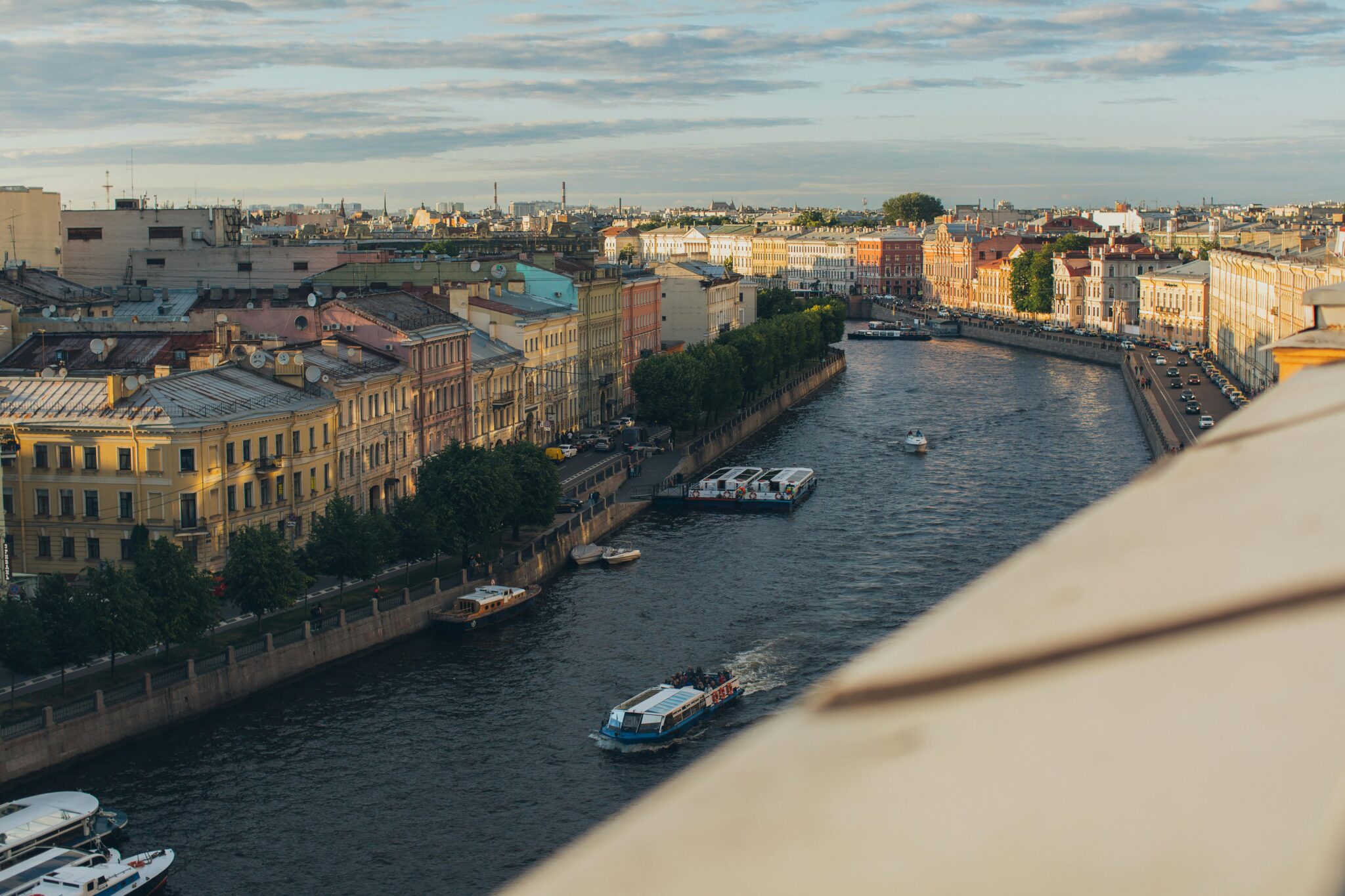
ADVANTAGES
In Russia, business opportunities can be found in many sectors and strong support from both the government and the Foreign Investment Advisory Council (FIAC) attracts foreign investors to invest in Russia. Russia offers the following key benefits of doing business:
A strategic location
Geography plays an important role in strategic culture, by placing enduring objective constraints on military and defense policy and influencing the way that political and military elites view the world.Russia shares a maritime boundary with North America via the Pacific Ocean. It also borders 16 countries across 11 time zones. The vast size of the country gives investors access to these 16 countries. A person could use Russia as his company headquarters in Europe and can venture into the neighboring countries subsequently.
The stable and growing Russian economy
It is well known that Russia boasts one of the most dynamically developing and attractive economies in the world. Since 1999, Russian GDP growth has averaged 6.8% per year.
Attractive incentives to do business
Being a member of BRIC countries, Russia has fair tax rules for its residents, and also the country is doing a great job of providing incentives for foreigners to do business in Russia. Russia has one of the lowest corporation tax rates in the European continent which attracts foreign investors who want to save money on taxes.
Investment prospects
New investment programs initiated by Russia have encouraged foreign investment, which can be proved beneficial for businesses looking to find funds and continue the expansion process.
Strong logistics and supply chains
Even though, Russia’s vast ranging borders can make logistics and supply chains a challenge, the recent developments in transport links and infrastructure have greatly improved the logistical efficiency of doing business in Russia. Moreover, the international expansion of Russia is also opening up opportunities for export to other commonwealth countries.
Double taxation treaties
Russia has signed a number of double taxation treaties with countries such as; France, Germany, Spain, Greece, Hungary, Iceland, etc. to avoid double taxation and reduce the tax barriers.
Membership of World Trade Organization (WTO)
WTO counts Russia as one of its members, which experience fewer trade barriers when doing business with the other members of the WTO.
SIMPLE TAX REGIME
Basically, the country has adopted Common Reporting Standard (CRS) legislation at the end of 2017, which enables Russian tax authorities to obtain information on financial accounts held by Russian tax resident individuals and companies from the tax authorities of the partner countries. In Russia, the financial year for accounting purposes starts from January 1 and, ends on December 31.
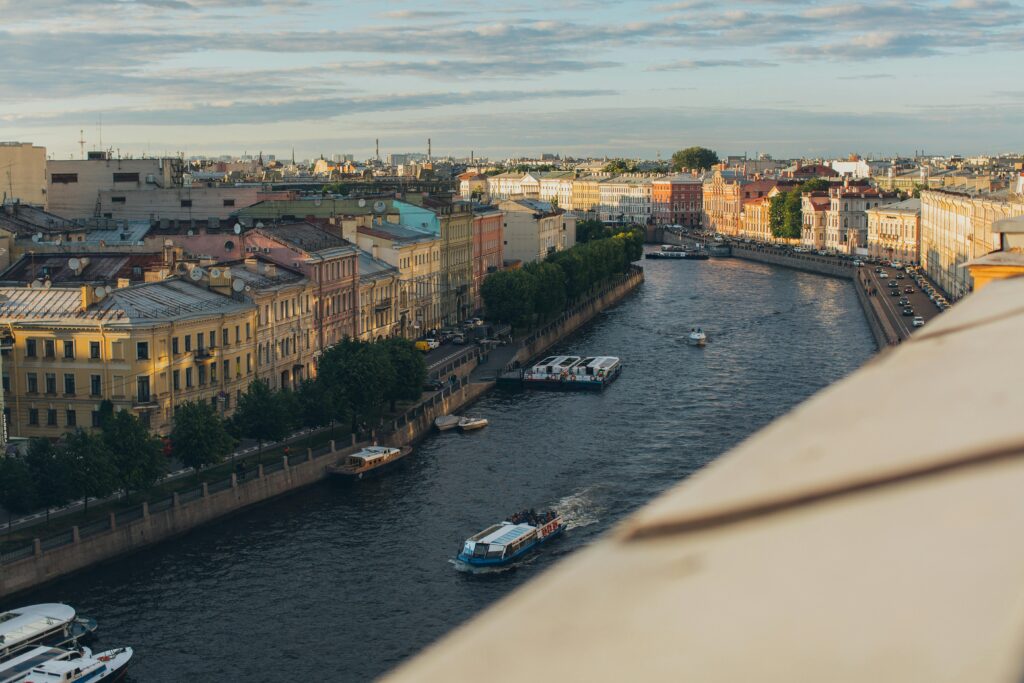
Corporate taxes
A company is deemed to be a resident of Russia for taxation purposes, if its place of effective management is in Russia, or if it is incorporated in Russia. Usually, the high corporate tax is levied on Russian companies such as; oil and natural gas sectors. These rates are not stated in the Tax Code, but they are decided by the Russian government. Standard corporation tax is 20%.
Foreign companies are liable to pay additional with holding tax at the rate of 10% to 20%, depending on the type of income and the method used to calculate their income that is not obtained by their permanent establishment in Russia.There are no local taxes applicable on income in Russia.
Individual taxes
In Russia, the residents are liable to pay personal income tax (PIT) on their total worldwide income received annually, whereas the non residents are liable to pay tax on income received from sources in Russia. There are some tax treaties signed by Russia provide for periods of exemption from Russian taxation on the Russian source income of non residents. Therefore, the details of any applicable tax treaty should always be examined before commencing work in Russia.
Tax Rate
Residents and foreign highly skilled specialists are taxed at rate of 13% of income up to RUB 5 million and income above this limit will be taxed at a rate of 15%. Foreign individuals present in Russia for 183 days in a year or more are treated as residents for tax purposes and are taxed at common 13 percent rates. If they are present in Russia for less than 183 days, they are subject to 30 percent income tax.
Non residents are liable to a flat PIT at a rate of 30% for all types of income received from Russian sources, except for the following:
- Dividends from Russian companies are taxed at a rate of 15%;
- Income of highly qualified foreign professionals is taxed at a rate of 13% to 15%;
- Certain income of foreign nationals from non visa countries is taxed at rate of 13% to 15%;
- Income of refugees for work duties is taxed at a rate of 13% to 15%; and
- Interest income from Russian banks up to RUB 5 million shall be taxed at a rate of 13%, whereas income above this limit will be taxed at a rate of 15%.
RUSSIAN COMPANIES
In case, if a foreign investor wants to set up his company in Russia, then a establishment suitable to his business or needs is to be choosen. As per Russian Company Law, there are several types of companies available in Russia, such as:
Limited Liability Company (LLC)
This type of company is designated by the letters “OOO” before or after its name. LLC is simplest form of company and is often used for wholly owned subsidiary companies of foreign investors. This company shares many similarities with another form of Russian company.
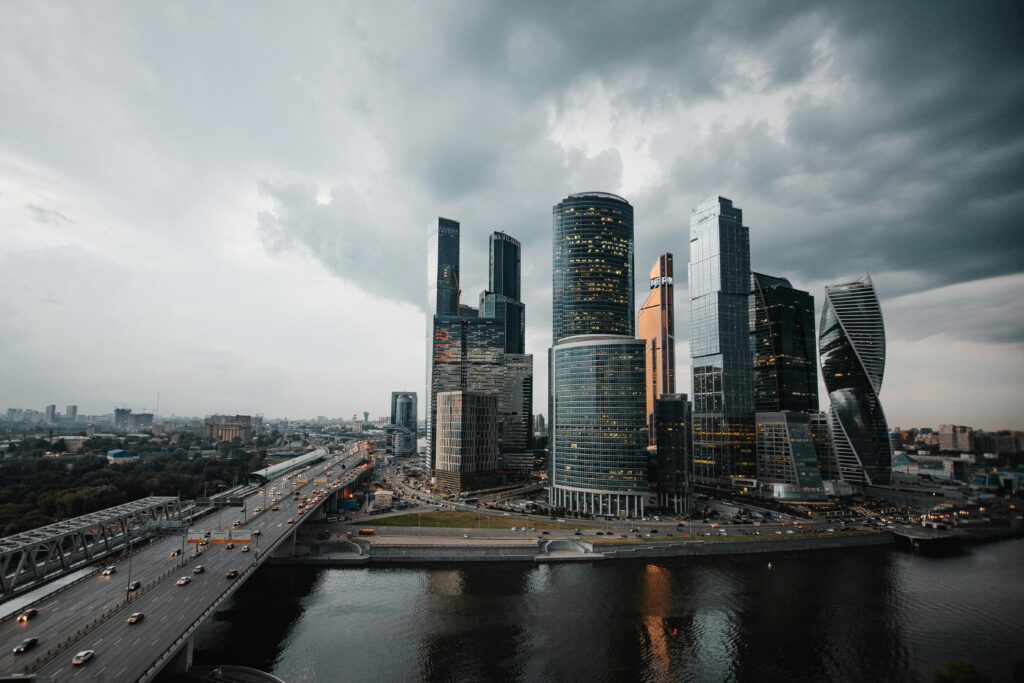
Joint Stock Companies
Basically, there are two types of Russian Joint Stock Companies:
- Open joint stock company (OAO)
OAO is a legal entity whose shares may be publicly traded without the permission of other shareholders. It can distribute its shares to an unlimited number of shareholders and sell them without limitations. However, the statutory minimum charter capital is 100,000 Russian Rubles.
- Closed joint stock company (ZAO)
ZAO is a legal entity whose shares are distributed among a limited number of shareholders. In case of ZAO, the maximum number of shareholders is 50. However, the statutory minimum charter capital is 10,000 Russian Rubles.
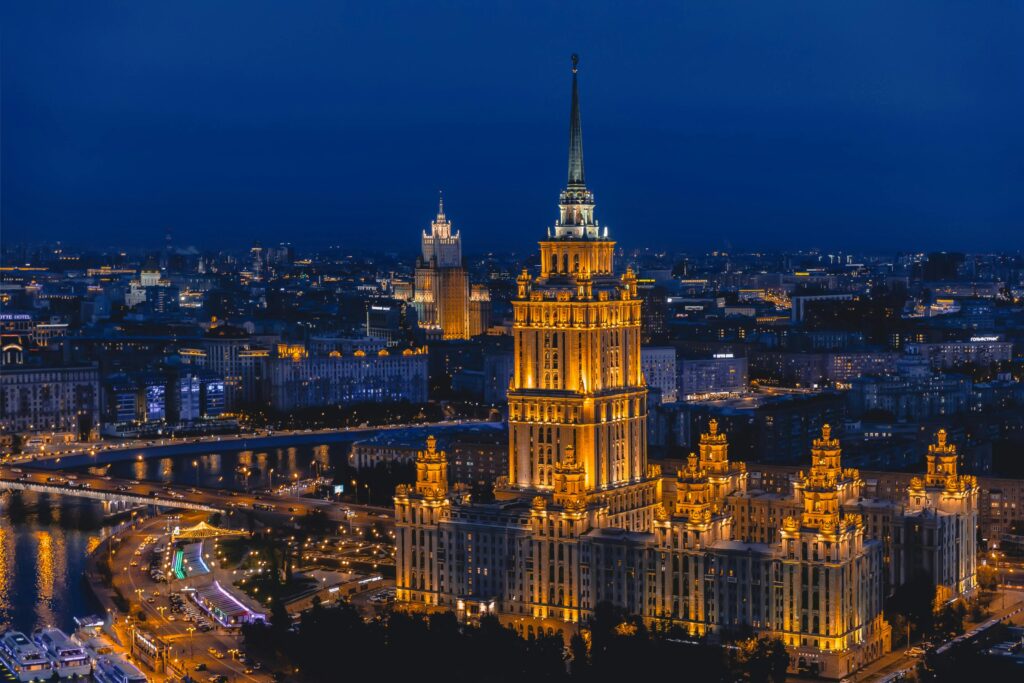
Representative Office
A representative office is the simplest form of business presence that a foreign company could establish in Russia. Basically, a representative office is not a separate legal entity but an office of the parent entity that represent its interests.
Economic Partnership
In Russia, the economic partnership is designed for the new technology sector and is meant to provide more flexibility for its participants than the existing LLC and JSC forms. Generally, an economic partnership shares many common features with a Russian LLC but with the advantage that the rights and obligations of participants, the management of the company and profit distribution are regulated by a much more flexible and less regulated notarized management agreement.

RELATED BLOGS
Basically, the Russian economy is based on a vast supply of natural resources, such as; oil, coal, iron ore, gold, and aluminum. Russia’s memberships of the Eurasian Economic Union have opened up doors for foreigners to do business. As the Asian continent has fast growing economy and huge population, this access can help investors in Russia to boost their business growth even more.
Author: Chandrawat & Partners
Topic: Doing Business in Russia
Contact Us
Get in touch with the right people to get the right help in setting up your business in Russia.
Contact us at:
[email protected].
We have a team of professionals to help you with all your business needs. So, that you can focus on business expansion in Russia.
Please feel free to email us on [email protected]
Russia
Why Russia?
The largest country in the world, Russia occupies one tenth of all the land on Earth. It covers twice the territory of Canada, which is the second largest country in the world, spans 11 time zones across two continents, “Europe and Asia” and has coasts on three oceans. The country is a federation of 86 republics, provinces, territories, and districts.
Basically, the Russian economy is based on a vast supply of natural resources, such as; oil, coal, iron ore, gold, and aluminum. Russia’s memberships of the Eurasian Economic Union have opened up doors for foreigners to do business. As the Asian continent has fast growing economy and huge population, this access can help investors in Russia to boost their business growth even more.
Advantages
In Russia, business opportunities can be found in many sectors and strong support from both the government and the Foreign Investment Advisory Council (FIAC) attracts foreign investors to invest in Russia. Russia offers the following key benefits of doing business:
A strategic location
Geography plays an important role in strategic culture, by placing enduring objective constraints on military and defense policy and influencing the way that political and military elites view the world.Russia shares a maritime boundary with North America via the Pacific Ocean. It also borders 16 countries across 11 time zones. The vast size of the country gives investors access to these 16 countries. A person could use Russia as his company headquarters in Europe and can venture into the neighboring countries subsequently.
The stable and growing Russian economy
It is well known that Russia boasts one of the most dynamically developing and attractive economies in the world. Since 1999, Russian GDP growth has averaged 6.8% per year.
Attractive incentives to do business
Being a member of BRIC countries, Russia has fair tax rules for its residents, and also the country is doing a great job of providing incentives for foreigners to do business in Russia. Russia has one of the lowest corporation tax rates in the European continent which attracts foreign investors who want to save money on taxes.
Investment prospects
New investment programs initiated by Russia have encouraged foreign investment, which can be proved beneficial for businesses looking to find funds and continue the expansion process.
Strong logistics and supply chains
Even though, Russia’s vast ranging borders can make logistics and supply chains a challenge, the recent developments in transport links and infrastructure have greatly improved the logistical efficiency of doing business in Russia. Moreover, the international expansion of Russia is also opening up opportunities for export to other commonwealth countries.
Double taxation treaties
Russia has signed a number of double taxation treaties with countries such as; France, Germany, Spain, Greece, Hungary, Iceland, etc. to avoid double taxation and reduce the tax barriers.
Membership of World Trade Organization (WTO)
WTO counts Russia as one of its members, which experience fewer trade barriers when doing business with the other members of the WTO.
Simple Tax Regime
Basically, the country has adopted Common Reporting Standard (CRS) legislation at the end of 2017, which enables Russian tax authorities to obtain information on financial accounts held by Russian tax resident individuals and companies from the tax authorities of the partner countries. In Russia, the financial year for accounting purposes starts from January 1 and, ends on December 31.
Corporate taxes
A company is deemed to be a resident of Russia for taxation purposes, if its place of effective management is in Russia, or if it is incorporated in Russia. Usually, the high corporate tax is levied on Russian companies such as; oil and natural gas sectors. These rates are not stated in the Tax Code, but they are decided by the Russian government. Standard corporation tax is 20%.
Foreign companies are liable to pay additional withholding tax at the rate of 10% to 20%, depending on the type of income and the method used to calculate their income that is not obtained by their permanent establishment in Russia.
There are no local taxes applicable on income in Russia.
Individual taxes
In Russia, the residents are liable to pay personal income tax (PIT) on their total worldwide income received annually, whereas the non residents are liable to pay tax on income received from sources in Russia. There are some tax treaties signed by Russia provide for periods of exemption from Russian taxation on the Russian source income of non residents. Therefore, the details of any applicable tax treaty should always be examined before commencing work in Russia.
Tax Rate
Residents and foreign highly skilled specialists are taxed at rate of 13% of income up to RUB 5 million and income above this limit will be taxed at a rate of 15%. Foreign individuals present in Russia for 183 days in a year or more are treated as residents for tax purposes and are taxed at common 13 percent rates. If they are present in Russia for less than 183 days, they are subject to 30 percent income tax
Non residents are liable to a flat PIT at a rate of 30% for all types of income received from Russian sources, except for the following:
- Dividends from Russian companies are taxed at a rate of 15%;
- Income of highly qualified foreign professionals is taxed at a rate of 13% to 15%;
- Certain income of foreign nationals from non visa countries is taxed at rate of 13% to 15%;
- Income of refugees for work duties is taxed at a rate of 13% to 15%; and
- Interest income from Russian banks up to RUB 5 million shall be taxed at a rate of 13%, whereas income above this limit will be taxed at a rate of 15%.
Russian Companies
In case, if a foreign investor wants to set up his company in Russia, then a establishment suitable to his business or needs is to be choosen. As per Russian Company Law, there are several types of companies available in Russia, such as:
Limited Liability Company (LLC)
This type of company is designated by the letters “OOO” before or after its name. LLC is simplest form of company and is often used for wholly owned subsidiary companies of foreign investors. This company shares many similarities with another form of Russian company.
Joint Stock Companies
Basically, there are two types of Russian Joint Stock Companies:
- Open joint stock company (OAO)
OAO is a legal entity whose shares may be publicly traded without the permission of other shareholders. It can distribute its shares to an unlimited number of shareholders and sell them without limitations. However, the statutory minimum charter capital is 100,000 Russian Rubles.
- Closed joint stock company (ZAO)
ZAO is a legal entity whose shares are distributed among a limited number of shareholders. In case of ZAO, the maximum number of shareholders is 50. However, the statutory minimum charter capital is 10,000 Russian Rubles.
Representative Office
A representative office is the simplest form of business presence that a foreign company could establish in Russia. Basically, a representative office is not a separate legal entity but an office of the parent entity that represent its interests.
Economic Partnership
In Russia, the economic partnership is designed for the new technology sector and is meant to provide more flexibility for its participants than the existing LLC and JSC forms. Generally, an economic partnership shares many common features with a Russian LLC but with the advantage that the rights and obligations of participants, the management of the company and profit distribution are regulated by a much more flexible and less regulated notarized management agreement.
Basically, the Russian economy is based on a vast supply of natural resources, such as; oil, coal, iron ore, gold, and aluminum. Russia’s memberships of the Eurasian Economic Union have opened up doors for foreigners to do business. As the Asian continent has fast growing economy and huge population, this access can help investors in Russia to boost their business growth even more.
Author: Chandrawat & Partners
Topic: Doing Business in Russia
Download our comprehensive guide on – Doing Business in Russia
Contact Us
Get in touch with the right people to get the right help in setting up your business in Russia.
Contact us at: [email protected]

